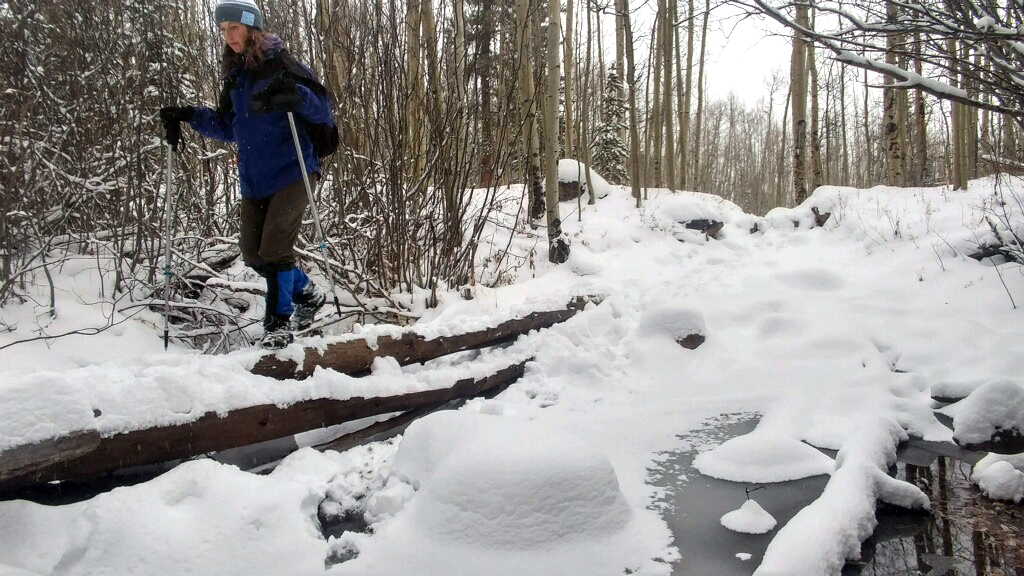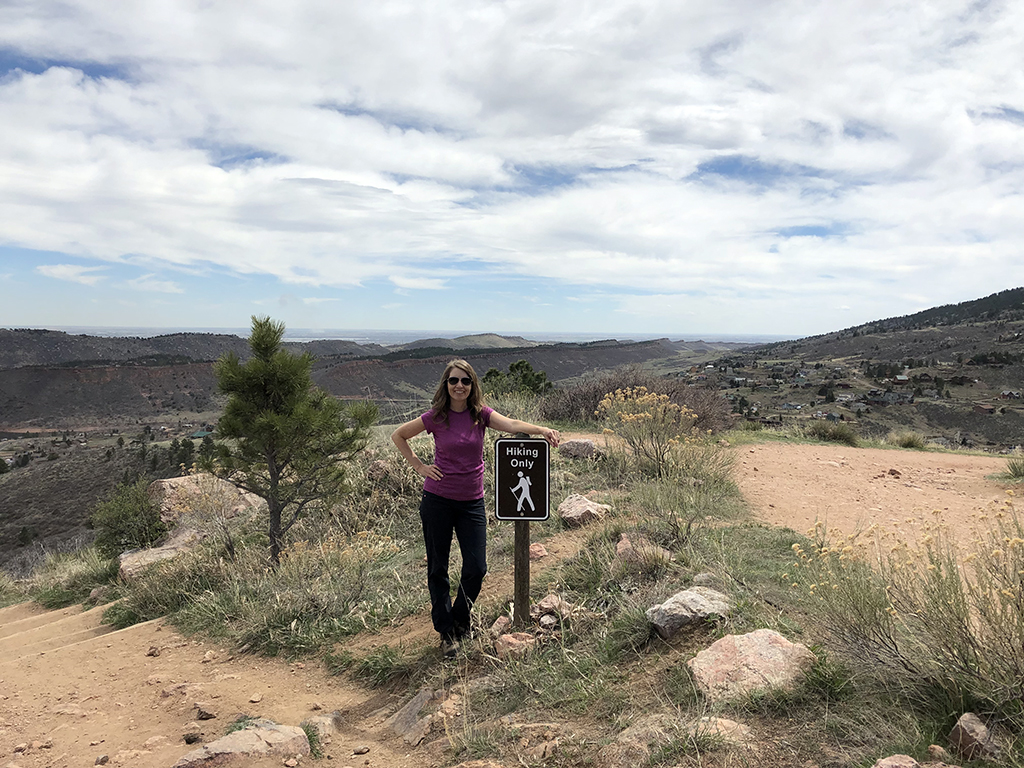Body Appreciation Through Hiking
No one would ever describe me as an athlete, so I am probably late to the game in appreciating my body’s functionality. Being blessed with good genes so that I’m generally healthy also means that I tend to take my body for granted.
The truth is, I long thought of my body in terms of how it looked, how it fit into clothes, or how it was judged by others (the weird mental woman’s work of developing opinions of my own body based on what others might think).
When I set out to update the guidebook 60 Hikes within 60 Miles of Denver and Boulder in late 2018, I pictured myself getting buff and toned and looking better than ever as I traipsed along Colorado’s Front Range trails more than once a week. I look back on that and shake my head, thinking, “What foolishness.” Note that I was thinking how I would look, not feel.

It takes actually using your body to appreciate it rather than judge it. Otherwise, we might miss important messages from our bodies that can direct our wellness—or underestimate our abilities as we sit back and demand that the body just be as we wish.
A Scientific American article titled “We’ve Lost Touch with Our Bodies” looks at how a combination of medications, technology, and our modern culture have led to many problems in which we are increasingly disconnected from our own bodies. Without going into great detail, the concept is called interoception, and it’s about how our mind receives and responds to basic internal signals from the body such as hunger and thirst. When we numb ourselves through medicines, screens, and more, then the messages don’t get through.
I certainly wasn’t feeling out of touch with my body, but I do think that a full-time office job and daily commute meant my body—like so many others—had morphed into the shape of a dining room chair, and I didn’t give it much thought. As long as I wasn’t sick, made it to a yoga class and the gym every so often, and fit into my favorite jeans, there was nothing to think about, right?
Body image is a complex topic for both men and women, and it changes with age, not just size. Psychology Today did extensive surveys on body image over the decades and concluded that, despite discontent with their bodies, people would rather be assessed for what they do, not how they look.
Somewhere on about hike 30-something in the middle of one of the snowiest Colorado winters in years, I began to think differently about my body, as I needed more energy and muscle to get from trailhead to peak and back, over and over again. I forgot all about how my body looked or might look in the near future and instead focused on what it needed from me in terms of types of food, hydration, and rest. My goal was essentially the same—complete all 60 hikes by deadline—but how my pants fit was no longer on my mind.
I developed a new respect for the hard work my body was doing as I tackled trails with thousands of feet of elevation gain in just a few miles, pushed myself to get up pre-dawn to be on the trail, and then asked my body to do it all again the next day or a couple of days later. I became grateful to my body for making it possible for me to meet my goals, and I showed this by making sure I ate protein-rich foods along with fresh vegetables and fruit, had enough snacks and water with me on each hike, and soaked in plenty of Epsom salts when I got home.
I started off as a slow hiker, and I finished as a slow hiker. My pants fit exactly the same on my last hike as my first. And I was thrilled with my body!
I learned that what matters is how you feel, not how you look.

The post Body Appreciation Through Hiking appeared first on Menasha Ridge Press Blog.





